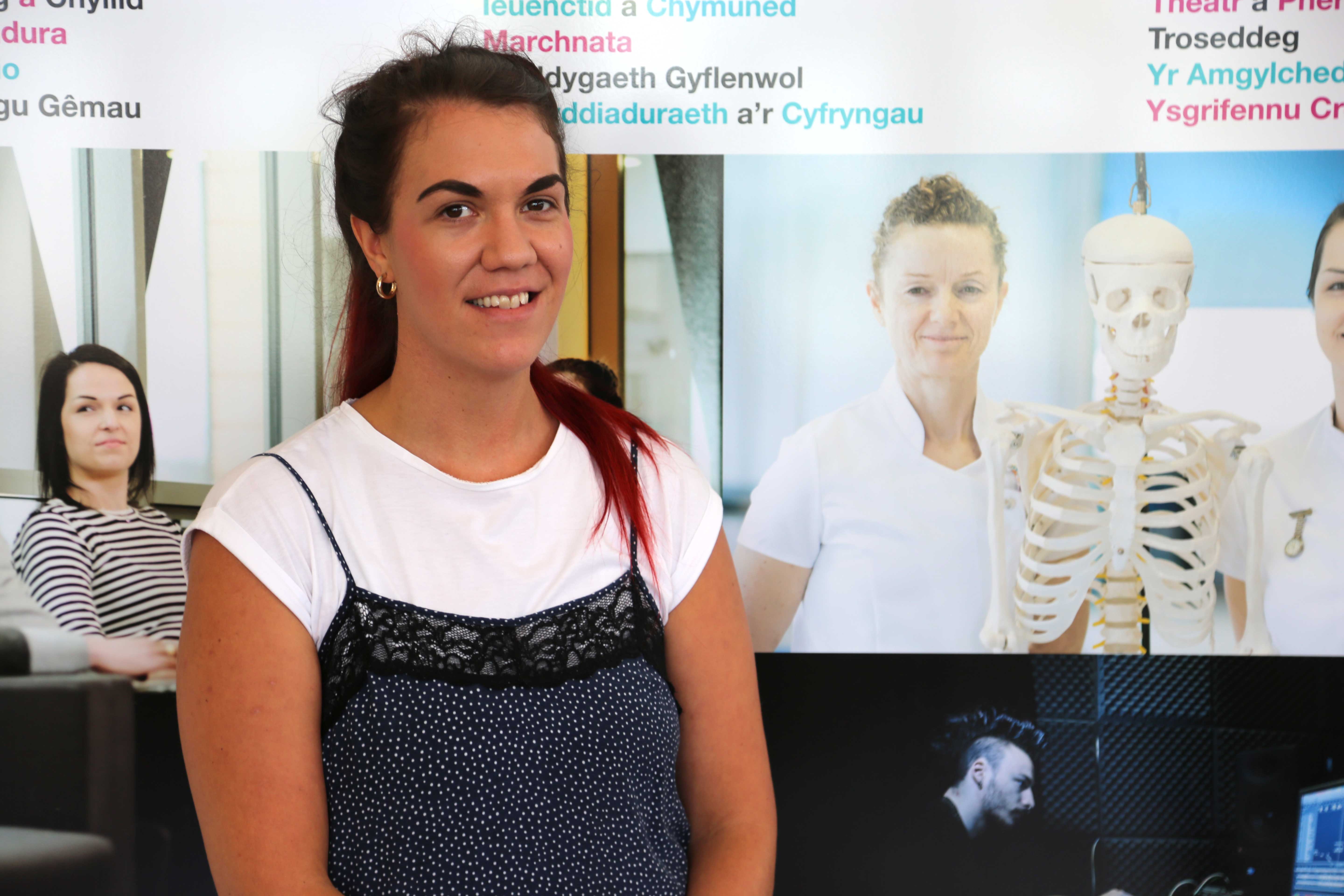Ongoing research into cardiac rehabilitation by a Wrexham Glyndwr University academic has found that the way current exercise regimes are delivered is not helping patients recover.
Lecturer in Applied Sport, Health and Exercise Physiology Chelsea Moore is part of the university’s Sports Science team and is currently undertaking a PhD examining cardiac rehabilitation. Her research suggests that the way rehabilitation is currently delivered means that exercise regimes are not benefitting patients in the way they are intended to– as they are not being given enough time, or reaching the correct level of intensity, to gain the benefits they need from each exercise.
She presented her work at the Active Ageing in Health and Disease: Translating Research Into Practice Symposium, held in Leeds, which heard research from academics from Belgium, Liverpool, and from PhD students at Leeds Becket University – where she is currently completing her own doctorate and has currently got two peer review publications on cardiac rehabilitation under review.
She said: “At the Leeds symposium, I spoke about exercise intensity in UK cardiac rehabilitation – I have been looking at how current cardiac rehabilitation regimes are run and the guidelines for how hard, how long and how frequently the exercises are carried out.
“These are carried out on exercise stations and run to a specific set of guidelines, and I wanted to look at those guidelines to see if they were being put into practice – and discovered that they weren’t.
“Patients are given a series of exercises as part of their rehabilitation, but are not being given enough time for that regime to succeed. The problem is, essentially, the way current guidelines are being delivered – they work if they are put into practice but, as things currently stand, they are not being followed.
“The harsh reality is the current exercises don’t meet the patient’s requirements. People are being given just two minutes to get up to the level they need to – and that doesn’t work.”
Instead, Chelsea has made a series of suggestions to improve the way the current regime is delivered.
She said: “My research suggests three possibilities for improving the way that the current regimes are delivered – the first would be a personal training style approach, where patients are monitored more closely to support them in achieving the exercise intensities which are needed to make a difference.
“The second would be to rearrange the circuit set up – if this was done it could allow patients more time on exercise stations to reach the desired exercise intensity – as the two minutes they are getting is not enough time to do this.
“Finally, there could be a move towards a full-on interval style approach, where we get rid of the circuit entirely and use bikes. I think the first two are more feasible for immediate purposes – as changing the regime entirely to get rid of the current circuit would require substantial funding and investment in cardiac rehabilitation.”
Find out more about Glyndwr’s Postgraduate Research degrees in sport, exercise and health science here: https://www.glyndwr.ac.uk/en/Postgraduatecourses/SportExerciseandHealthScience/
Recents Posts
Staying put
The staycation has been growing in popularity for a [...]
The great day out!
August is here and along with the sunshine (we’re [...]
Coleg Cambria and LEAF Education launch annual search for innovative schools
LEAF Education Launches Search for Innovation School of the Year [...]
Angus to feature in national art exhibition
A talented young artist at Rydal Penrhos will have [...]




